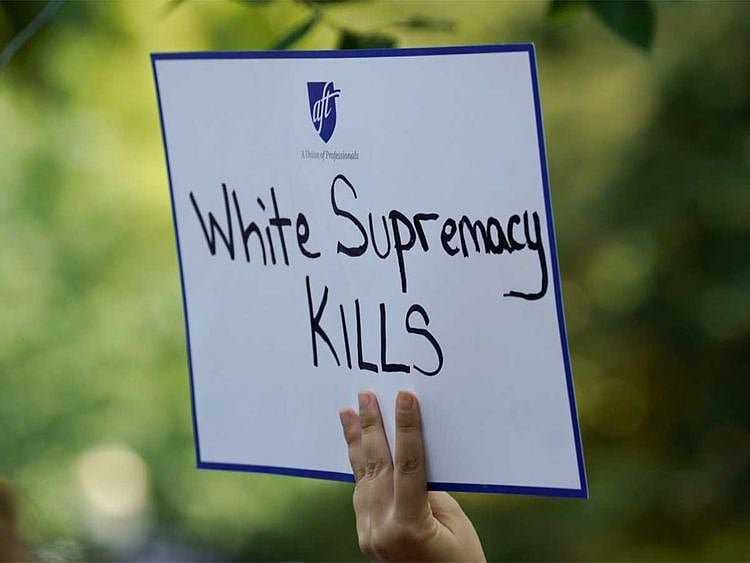Fear and loathing in the parking lot
In these tense times, even a simple hit-and-run accident provokes a moral quandary

My husband had just been wheeled away for a routine hip replacement operation when I found a note under my windshield wiper in the surgery centre’s parking lot. “The woman hit your car when trying to park in the space next to you,” it read. “She pulled off and parked on other side.” The note included a description of the other driver’s car — an older vehicle, bright yellow — along with its licence plate number and the time of the collision. My car’s fender was smashed, the bumper crumpled, and across it all was a smear of bright yellow paint.
I called my insurance company and went back inside to wait for the police to come and write up the incident. I couldn’t stop thinking about the other driver. What kind of person does that much damage to someone else’s car and then simply moves to the other side of the parking lot? A panicky teenager? An employee late for work? An irresponsible jerk? Then it dawned on me that the driver might be undocumented, someone for whom a simple fender-bender would cost. What if giving my insurance company her tag number would make me complicit in a deportation?
Hollow-eyed babies in detention centres
My thoughts were racing, jumbled. “Routine” and “surgery” are not words that work together seamlessly in my mind when someone I love is the patient. I was tired, I was hot, I was worried about my husband. There was absolutely nothing in the note that indicated an undocumented driver, but the notepaper was decorated with an image of the Statue of Liberty, and maybe that’s all it took to skitter my mind in a direction that logic would not have taken it.
Or maybe it’s simply the age we live in, when images of hollow-eyed babies in detention centres are all over social media. When hardworking immigrants, in America for years, even decades, are surrounded like fugitives and carried away, their hands zip-tied behind their backs, while their children wail. When the rhetoric of the president of the United States is echoed in a mass murderer’s racist screed. Every single day in US, peaceable people are hunted down for the crime of not being white, and it’s the maniac with the gun who defines what “white” actually means.
I once believed that Jim Crow was safely buried in the past, but I know better now. White supremacists march proudly in parades and speak openly to the media. As it turns out, she is white, a professional with advanced degrees, and fully insured. I could stop fretting about my own moral culpability, at least where my car’s mangled fender was concerned. But it all came back to me again at the body shop the following week. The service agent shook his head when I told him the circumstances of the accident. “We’re seeing a lot more hit-and-runs these days,” he said. “A more. I think it’s probably all these illegal aliens we’ve got now.”
It struck me how similar his initial reaction was to my own, and yet the way he said it, that emphasis on, told me that we had not come to this conclusion from the same place. For days I thought about that exchange. How is it possible for two people to have exactly the same information — and exactly the same lack of information — and nevertheless take such diametrically opposed positions?
The sum total of gut reactions
As Kathleen McAuliffe reported in the March 2019 issue of the Atlantic, multiple studies have found that conservatives are more alert to perceived threats, especially those associated with strangers, and that this behaviour is surprisingly strongly linked to biology. “We would look at brain scan results, and we could be incredibly accurate knowing whether they’re liberal or conservative,” John Hibbing, a political scientist at the University of Nebraska-Lincoln, told NPR last year.
Conservative voters today are no doubt being manipulated by a political machinery that has long recognised their vulnerability to fear and revulsion. “It’s a little hack,” David Pizarro, a psychology professor at Cornell University, told Ms McAuliffe. “You hack into brains pretty quickly and easily by making them feel disgust.”
I take some comfort from this research because it suggests a way to shift the political narrative. Human beings are more than the sum total of their gut reactions, and conservative voters might yet be convinced that they need not fear people outside their immediate ken. But even if Fox News blocks that shift at every turn with its constant anti-immigrant hysteria, I still take heart from knowing that so much of our political behaviour is cued by biology. It reminds me that this terrible political age is not unique. The republic has survived profound divisions in the past, and it can survive the immense political chasms of our own time, too. A crumpled culture is not as easily fixed as a smashed bumper, but it can still be repaired.
— Margaret Renkl is a contributing opinion writer who covers flora, fauna, politics and culture in the American South.
Sign up for the Daily Briefing
Get the latest news and updates straight to your inbox
Network Links
GN StoreDownload our app
© Al Nisr Publishing LLC 2026. All rights reserved.